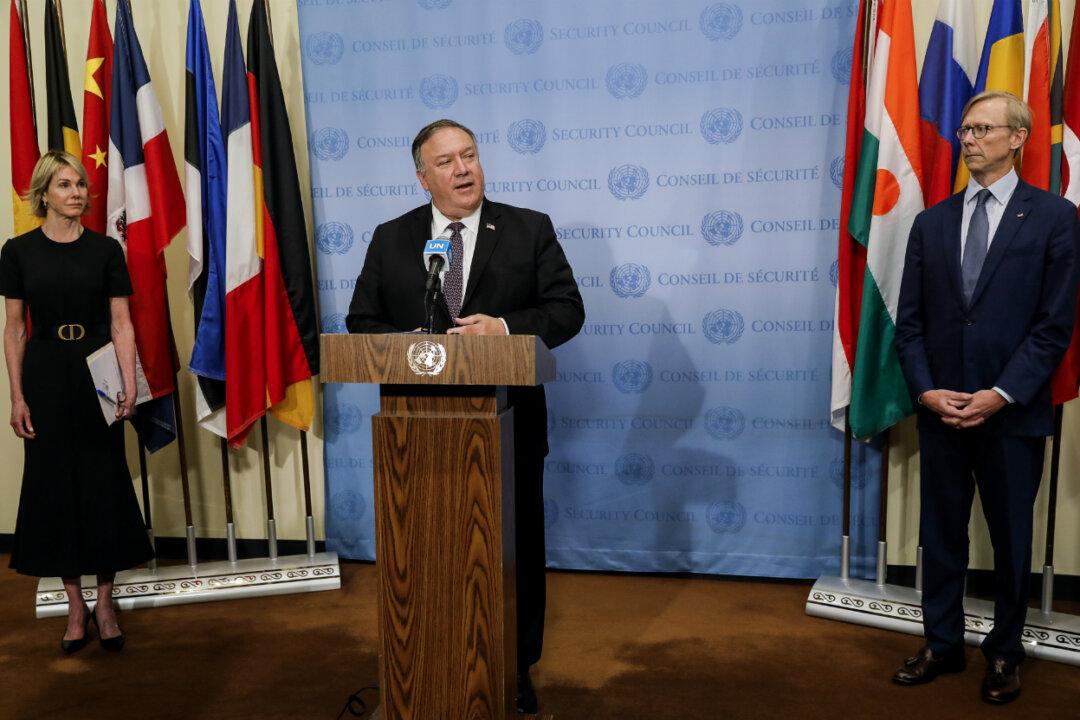The Trump administration on Thursday formally notified the United Nations of its demand for all U.N. sanctions on Iran to be restored in order to prevent Iran from purchasing weapons that could be used to arm terrorist organizations.
Secretary of State Mike Pompeo delivered the notification to U.N. Secretary-General António Guterres and the president of the U.N. Security Council citing significant Iranian violations of the 2015 nuclear deal—a requirement to “snap back” U.N. sanctions.





